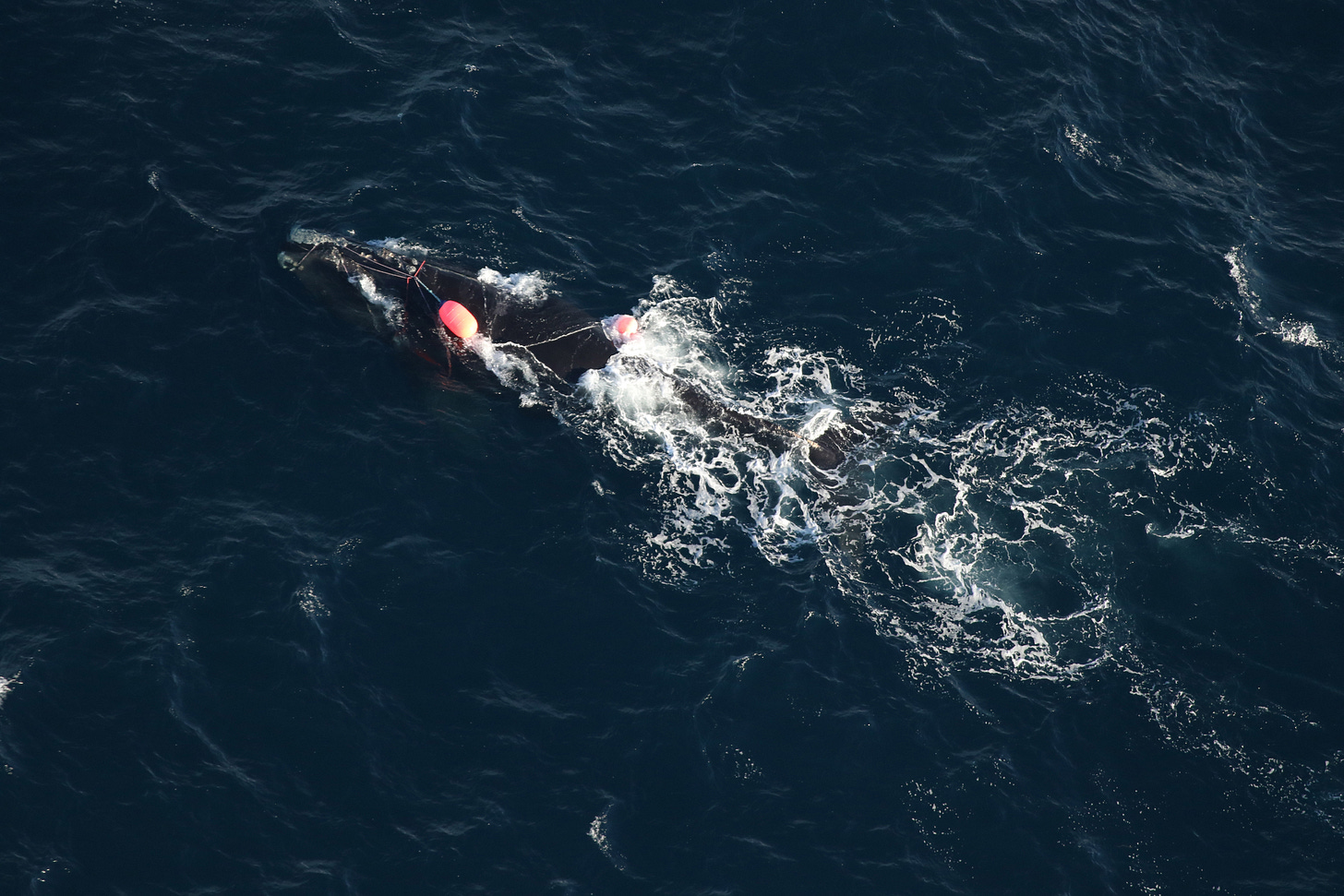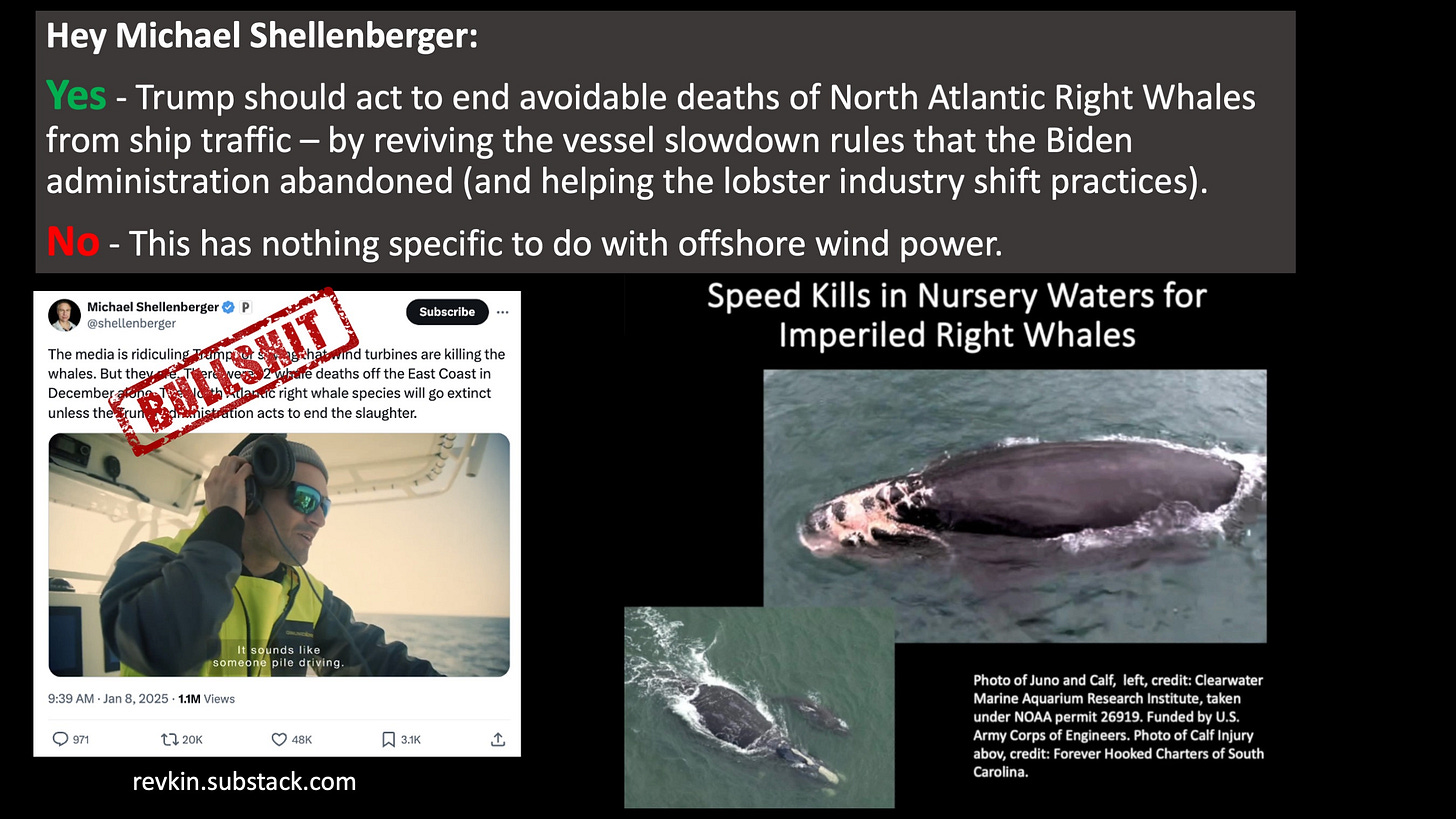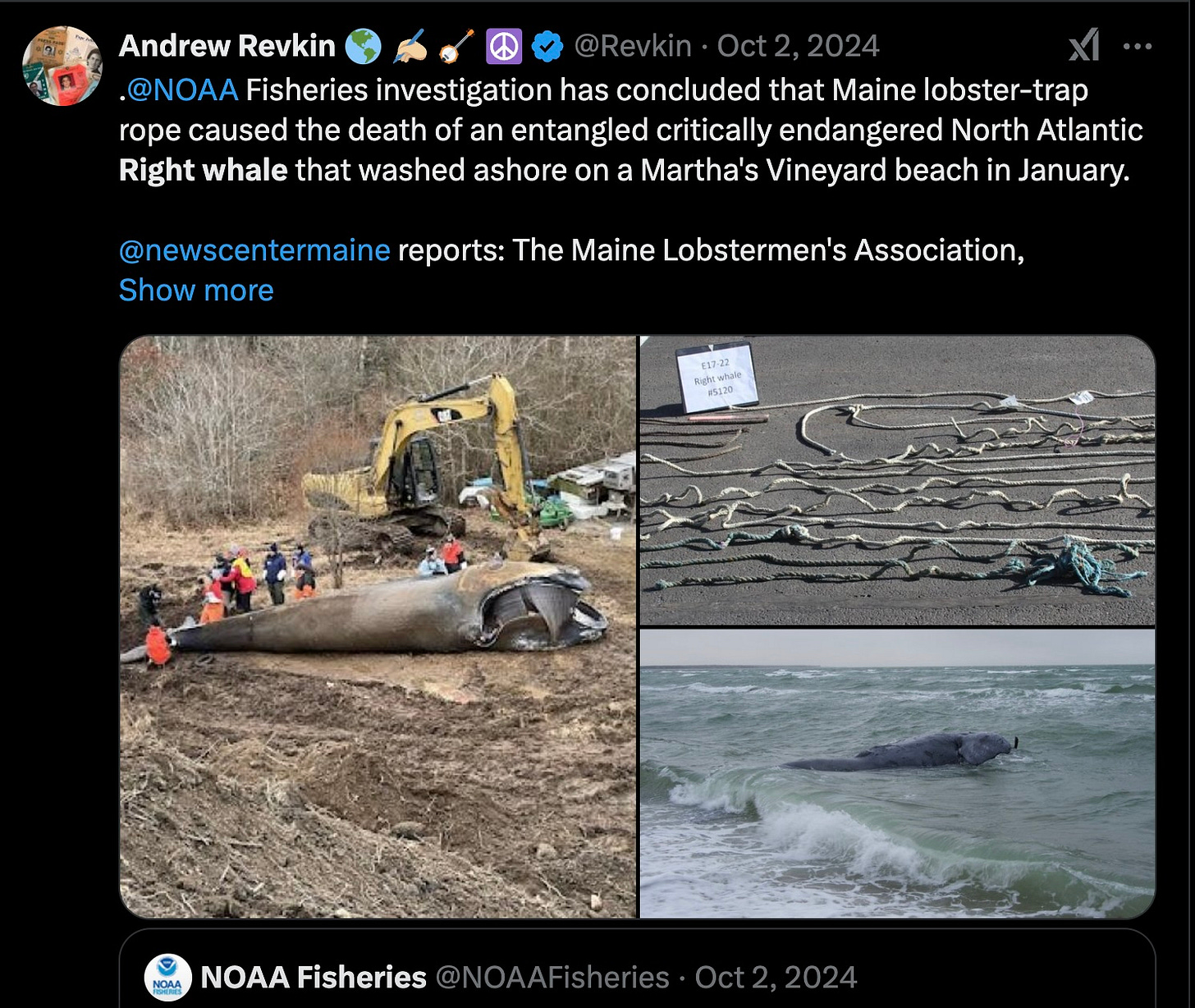Michael Shellenberger's (Wind) Power Trip
A vital critique of a cartoonish argument against offshore wind power in the name of whale safety
I first got to know Michael Shellenberger as one of the Death of Environmentalism “bad boys” along with Ted Nordhaus a couple of decades ago. Together they founded the Breakthrough Institute. In 2015, with Nordhaus and more than a dozen others, including Roger Pielke Jr., Shellenberger crafted an Ecomodernist Manifesto, much of which I embrace. After he went out on his own, Shellenberger did some creditable work defending and advocating for nuclear power and sharply critiquing the flaws in progressive politics and policy. His stance on censorship and government opacity has some value. My last interaction with him was through a 2020 C-Span discussion of his book Apocalypse Never, in which he described his book as a defense of human progress. I share that passion but saw too much overzealous simplification. See Rhett Butler’s critique of Shellenberger’s Amazon forest statements in 2019 as a tiny glimpse at what I’m describing.
In the years since, he has seemed to put visibility way ahead of veracity (a too-common trait these days around the ideological spectrum).
A whale of a wind tale
Shellenberger’s recent argument against offshore wind power expansion on the basis of Atlantic Ocean whale deaths shows the same pattern and is thus worth a deep assessment. Luckily, one has just been done by Seaver Wang, who has a doctorate in earth and ocean sciences from Duke and co-directs the climate and energy program at the Breakthrough Institute. I’ve done quite a bit of reporting on whale threats and related policies, and ran a valuable conversation on ship strikes as a deadly threat to the last 370-or-so living North Atlantic right whales - a species Shellenberger puts in the foreground. You can watch that webcast below. My reporting syncs tighly with Wang’s analysis.
Trump should do what Biden didn’t
If Shellenberger really wanted to save the most endangered Atlantic whale species, the North Atlantic Right Whale, he would indeed be advocating for President Trump to intervene - not focusing on wind turbines but reviving the proposed vessel-slowing rules the Biden administration just abandoned and helping the offshore lobster industry here in the Northeast (and in Canadian waters) shift practices and gear. Both are urgently needed, as the was made clear when federal biologists confirmed that Maine lobster trap lines were the cuase of death of one whale last year. No wind turbines in sight.
Centering on offshore wind completely obscures realtime threats. Here’s an excerpt from Wang’s post and a link to the rest. I’d be happy to host a discussion with Shellenberger on this and other issues with some of his critics, although he might not see the value given Sustain What’s audience compared to that of Joe Rogan. We’ll see.
No, Offshore Wind Will Not Drive Right Whales Extinct
A Reminder That Common Environmentalist Tropes Often Boomerang
“If you’re into whales, you don’t want windmills,” Trump asserted in an Inauguration Day speech before supporters in Washington D.C.. The same day, Trump issued an executive order withdrawing all areas of the outer continental shelf from offshore wind leasing.
This dramatic reversal for the U.S. offshore wind sector marks a clear victory for offshore wind critics who have long warned that wind projects would devastate Atlantic whale populations. Such arguments have amassed surprising popularity. Earlier this month for example, controversial commentator and self-described journalist Michael Shellenberger—once affiliated with BTI—published a tweet thread to viral acclaim claiming that offshore wind projects off the East Coast of the U.S. threaten the North Atlantic right whale with extinction and calling upon the new Trump administration to “end the slaughter.” In his post, Shellenberger shared Thrown to the Wind, a September 2023 movie produced by his organization Environmental Progress that allegedly investigates the links between wind farm construction and whale deaths.
But upon cursory examination, Thrown to the Wind commits numerous factual errors on critical points, systematically omits contextualizing information, neglects to discuss the many other threats that whales currently face, and generally dresses up uncritical sensationalism with vigorous hand waving and worn appeals to science.
Here’s the full post, which goes into step-by-step detail revealing Shellenberger’s distortions:
Here’s the Sustain What conversation I hosted on January 11, 2024, on boat and ship strikes and the need for slow speeds in areas where North Atlantic right whales are known to congregate:
We discussed the issues just a few days after video emerged showing grievous head injuries suffered by a right whale calf born late in 2023 and seen as the small whale approached a charter fishing boat off South Carolina with its mother Juno. That calf washed ashore dead in Georgia on March 3, 2024.
My guests were Regina Asmutis- Silvia, the executive director and senior biologist for Whale and Dolphin Conservation North America; Tracy Duncan, the co-owner of Forever Hooked Charters, which operates the boat that spotted the injured baby whale; and Jason McClendon, an angler on the boat that day who is a South Carolina realtor. The charter was McClendon’s first offshore trip. As he notes, he was “one for one, but regrettably the sighting had a terrible cause and ultimately the baby whale perished.”
It was a wrenching conversation that showed the profound and complex challenge in finding consensus around saving whales and sustaining coastal econonic activity.
In other words, it was the antithesis of hand-waving rhetoric.
In the meantime, the urgency builds for right whale survival even as the latest data show a tiny uptick in population estimates.
There’s lots more at NOAA’s excellent right whale website, including a depressing photograph of a juvenile male born in 2021 festooned in life-threatening fishing gear. No wind turbines or pile drivers in sight.








Nice job!
Thank you, Andy. This is so important.